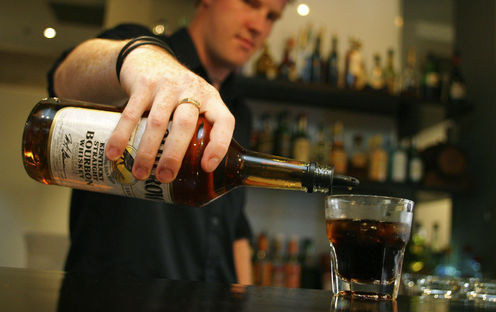
It’s undeniable that there’s an irreconcilable conflict of interest in the alcohol industry being involved in developing health policy. And by participating in meetings involving industry representatives, scientists risk giving credibility to a fundamentally flawed process that’s unlikely to produce sound policy.
Let me explain why this is with examples of two such meetings I have participated in.
A direct conflict
The more recent was the Intergovernmental Committee on Drug Policy (IGCD) National Stakeholder Meeting on Alcohol Related Violence and Harm in Canberra (November 19, 2014). In an e-mail invitation, IGCD presented the meeting as:
an excellent opportunity for stakeholders to work collaboratively with experts and governments across Australia in identifying opportunities to reduce the impact of alcohol related violence and harm.
I was invited to give a presentation on the Newcastle experiment in earlier closing of pubs, and to join a panel including “representation from research, data, consumer, health, law enforcement and liquor licensing backgrounds.”
There was no mention in the invitation of alcohol industry involvement, yet there were senior representatives from the Australian Hotels Association, the Australian Liquor Stores Association, the Brewers Association of Australia & New Zealand, the Distilled Spirits Council of Australia, the Wine Federation of Australia and the industry-funded organisation DrinkWise Australia at the meeting.
These industry representatives were vocal, repeating usual lines about “individual responsibility”, “needing to work together” to address “complex problems”, saying there were “no silver bullets”, that “this industry employs thousands of Australians”, and that it’s “doing its part” and “has made enormous progress” in the effort to reduce alcohol-related harm.
There were also implicit threats that if the industry were “left out” of policy development, members would stop cooperating with authorities and might attempt to subvert efforts to reduce alcohol-related harm.
In response to a question about why we were not making better progress in getting evidence-based policy adopted in Australia, I suggested it was due, in part, to the fact that the alcohol industry has undue influence on policy makers, adding (quotation from notes I made the day after the meeting):
It is perfectly legitimate for the alcohol industry to want to make money from the sale of alcohol, a legal product. They are legally obliged to maximise value for shareholders, which typically involves selling more alcohol. If I were them I would come to meetings like this and try to shape the discourse as much as I could.
The meeting ended with each table of delegates producing a list of vaguely-defined policies on butcher’s paper. These were put on the wall and delegates were each given red stickers to place against the policies they considered “best buys”.
The IGCD secretariat then gave a summary of the outcome and we were told the finding would inform the development of the next national alcohol strategy. The alcohol industry had effectively been given a vote on the nation’s future alcohol policies.
Déjà vu
The experience of this meeting reminded me of being on the health advisory panel for the development of the National Alcohol Strategy 2005-9. There was also an industry advisory panel.
At one stage, the secretariat presented us with a draft of the strategy document titled “National Alcohol Strategy 2005-2009: Developing our Drinking Culture”. We were advised the title had been suggested by the industry panel.
Members of the health advisory panel probably influenced the content of the document, but I was left wondering whether the nett effect of our involvement was positive. Or if we had simply given the government, which did nothing positive on alcohol in the years that followed, the opportunity to say they had consulted the experts.
If you’re not convinced there is an irreconcilable conflict of interest in having an industry that stands to profit from increased sales of a product involved in the regulation of that product, perhaps you’ll consider the track record of the industry in question here.
Like Big Tobacco, the alcohol industry systematically seeks to muddy the water around policy options by interfering with the evaluation of policy effectiveness data, funding scientists to pursue research questions favourable to industry interests, and forming alliances with supposed health advocates to pursue industry-friendly policy outcomes.
How a government decides to treat commercial interests in relation to public health depends on its values, sources of income, power in parliament, and perceived electoral position. But we have clear evidence that reducing the availability and promotion of alcohol are critical to reducing the alcohol-related disease and injury burden. And that education and information campaigns preferred by industry are generally ineffective, particularly in the absence of better controls on the availability and promotion of alcohol.
This science, which has grown substantially since Australia’s last effort to develop national strategy, is the evidence base on which the next strategy should be built. But if governments choose to prioritise commercial interests, they place health scientists in the invidious position of helping inflict damage on public health when participating in so-called policy development meetings.
Governments should listen respectfully to all legitimate interests, but they should also take action that prevents vested interests having influence on health policy.
Kypros Kypri receives funding from the NHMRC and ARC. He is affiliated with the School of Medicine & Public Health, University of Newcastle.
